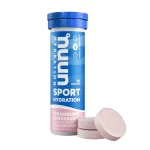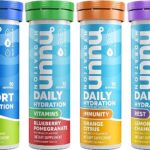Ben Stern’s passion for nature and worries about the environment drove him to start Nohbo. This company creates technologies for consumer goods products that fully dissolve and leave no trace behind. Stern decided to target the issue of plastic pollution at the root by trying to eliminate plastics. He figured out how to encapsulate your favorite personal care products in a fully water-soluble film. For example, you can have your shampoo in a fully dissolvable film.
Ben founded Nohbo when he was a freshman in high school after he discovered the harm that was being caused by single-use plastics. He was later featured on Shark Tank where he was able to land a deal with Mark Cuban. His company also gained a lot of visibility because of all the viewers that tune into the show. Nohbo has grown quite a bit since the show and is currently based in Palm Bay, FL.
They sell 3 dissolvable products which include, Drops, Hydrofill, and slips. Nohbo has found a big market in the consumer-packaged goods industry and hospitality industry as well. New legislation has been a large factor in how they found out about Nohbo. The push towards being environmentally friendly and sustainable has been a positive for Stern’s company as his product can help serve those who believe in that.
Nohbo owns and operates another company, Sunrise Session. As you could guess, it is a single-use, plastic waste-free self-care innovation brand. Their single-use remedies free you from your plastic obsession and deliver the same quality as other brands.
I appreciate the true problem solver that Stern is. He wasn’t afraid to jump in and tackle a huge problem which has allowed him to create a huge impact with lots of potential for growth.



